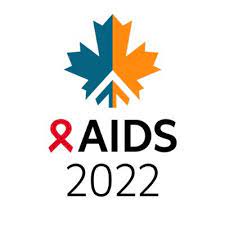AVAC in collaboration with the Key Population Transnational Collaboration (KP-TNC) is glad to invite you to the Trans Manifesto Roadshow Webinar. This webinar will be facilitated by Brian Minalga, Leigh Ann and Cindra of AVAC.
The webinar will disseminate a Transgender Manifesto that is written and informed by trans and gender-diverse (TGD) activists from Cape Town to Berlin, with support and solidarity from AVAC. The manifesto demonstrats that lack of transgender data in HIV research and other interventions is detrimental to HIV response in the overral exposing trans populations to greater risks. The research culminated to a Manifesto for the Transgender that requests all HIV interventions not to ignore the reality of data for the trans populations with a call of NO DATA NO MORE! Kindly download the Trans Manifesto here.
Register here.
About the Facilitators
Brian Minalga
Brian Minalga works at the intersections of HIV research, public health, and community advocacy. Brian focuses especially on representation as it relates to scientific integrity and prioritizing the communities with the greatest need. Having worked in the fields of HIV, social work, education, and dance in locations ranging from Seattle to Detroit and Namibia to Niger, Brian brings a global and interdisciplinary perspective to their work. Brian is gender nonbinary and uses any pronouns (they, she, he, etc).
Leigh-Ann van der Merwe
Leigh-Ann van der Merwe is a self-identified trans woman of colour from the Eastern Cape Province of South Africa. She is the founder and director of Social, Health & Empowerment Feminist Collective of Transgender Women of Africa. Leigh-Ann is also a researcher who has published in local and international academic journals on transgender women and HIV, and trans/feminism.
Cindra Feuer
Cindra is a Senior Program Manager for Partnerships and Capacity Strengthening at AVAC: Global Advocacy for HIV Prevention. She co-manages its various advocacy programs in the US, Europe and Africa. Cindra held staff positions at POZ and HIV Plus magazines, covering the pandemic both domestically and internationally. She also worked with various groups including the Lesbian Avengers and Sex Panic!, a sexual activism group dedicated to pro-queer, pro-sex worker and anti-racist campaigns for sexual freedom in the age of HIV and AIDS.

